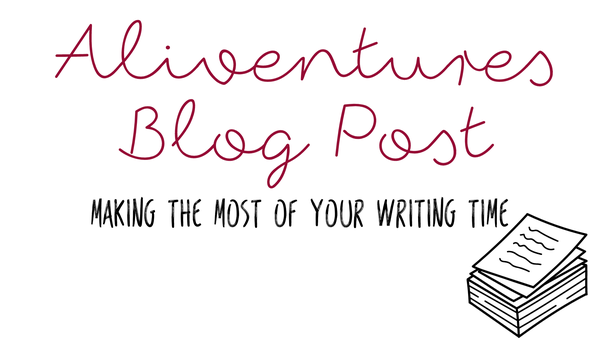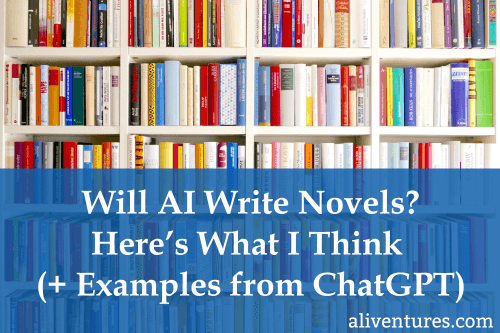One question that’s been on my mind often recently is whether AI will eventually be able to write novels.
As a novelist and a reader, this prospect definitely alarms me! As a freelancer, I’ve worked with several AI companies (and
used AI tools to assist with my work, where clients want that), so I’m also curious about the boundaries of what AI can do.
Understandably, a lot of authors aren’t at all keen on AI (artifical intelligence). They don’t want their work to be used as part of a “dataset” for an AI—it feels tantamount to having it stolen.
AI also brings up environmental concerns, due to the processing power tools like ChatGPT use.
I won’t get into the various controversies here, because regardless, AI is here to stay, and it’s getting increasingly popular and powerful.
So will it
write novels?
Here’s my take right now, in early 2025. AI has come a long way in just a couple of years, since ChatGPT was launched at the end of November 2022. It can’t do everything a human writer can do, but it can absolutely be a support to the creative process.
If you look a
little further back, the massive improvement in AI is very clear. One of the first AI-written novels out there is Ross Goodwin’s 1 the Road, published in 2018. Here’s an extract from the first page:
A patch of green
grass seemed to be seeking its face, but it was not much to see. A small patch of grass had already been stretched along the sidewalk, and the steps of the barn were locked.
Even within this paragraph, there’s a lot that doesn’t make sense. (The face of what? How is the grass stretched? Steps can’t be locked…)
Several years on, tools like ChatGPT can – as we’ll see in a moment – produce much more coherent fiction.
Note: There are a number of different AI language models out there, but I’ll be focusing on ChatGPT (from OpenAI) in this post, as it’s by far the most popular.
Let’s tackle the biggest question first.
Read more...

